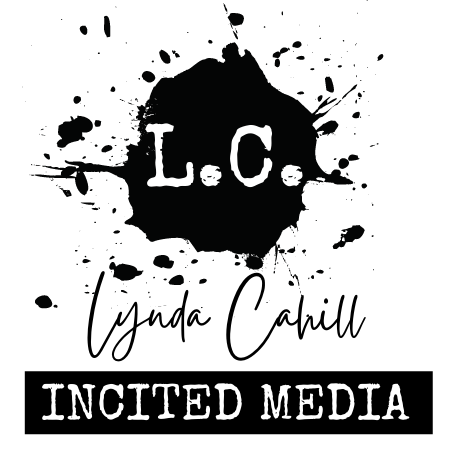
I have a friend who has always worked in the childcare industry. Jodie has always been a natural with children, and is always learning, reading and talking about them. There was never any doubt she would build her career around kids, and it is no surprise that she has now set up a very successful business as a childhood education consultant. Like Jodie, many people are lucky enough to have inbuilt passions, which they can follow to find fulfilment in their careers.
But what if you don’t have a passion to follow?
That was me. Even though I was desperate to start my own business, I had no passion to follow. I had even tried running a few businesses, but none of them excited me so I gave up on them. I really wanted to do work that fulfilled me and I was great at, but I didn’t have a zone of genius, either.
So, I sat on the couch waiting for inspiration to strike. For years. Then one day, while doing my 456th Google search on “how to discover your passion”, I came across an article written by Professor Cal Newport, from Georgetown University. Newport challenged the notion that we all have a pre-existing passion to follow. Instead, Newport said, our love for our work comes when we build our knowledge and skills to become great at what we do, and when we feel like the work we are doing is adding value to the world.
SAY WHAT, CAL??? Are you saying we can cultivate our own damn passions? (Spoiler alert: that is, in fact, exactly what he was saying)
Professor Cal Newport became my instant hero.
What a freakin’ relief! I was not the only person in the world who didn’t have a clue what I was meant to be doing with my career, and it was still possible for me to find fulfilment and become successful. Even at my old age! Learning this was a real game changer for me. There was hope. Hooray!
And, my friend, I am very pleased to say I am now running a business I’m nuts about (I’m a content manager in the business education niche). It took time to let it evolve into something that was the right fit for me, (I am, after all, shaped like a potato). But I’ve managed to cultivate a passion for what I do (blogging).
So, how exactly can you build a business you love when you are one of those ambitious souls who don’t have a passion to follow? Well, I’m going to share five pieces of advice that helped me. I suggest you grab a piece of paper or your journal to brainstorm ideas as you go.
OK. Let’s get to it
1) Follow your curiosity
We all know Elizabeth Gilbert as the author of Eat, Pray, Love and Big Magic. However, I love, love, love listening to her speak. She is so authentic and spirited, and I think she is just divine.
I watched her being interviewed by Lewis Howes, and she talked about how people always ask her for advice about what they should do with their life. Gilbert, being one of those lucky people who had a passion to follow, has always wanted to be a writer. So, she was always telling people to just do the thing they felt passionate about, like she was doing.
Of course, Gilbert soon discovered we all aren’t as lucky as her. We don’t all have passions to follow, even though some of us desperately wish we did.
“We preach this passion thing in almost a fundamentalist way… if you have a passion, of course, do it. But maybe there is a gentler answer, which is to follow your curiosity,” she said.
This sentiment is echoed by Richard Branson who wrote, “Make a list of all the things that interest you. It doesn’t matter how trivial or random the items are, or if they don’t appear to lead to an entrepreneurial idea – one could spark an idea that turns into a business.”
When I was trying to find a business idea I loved, I spent time exploring and researching things that interested me, such as business, branding, floral art, photography, doodling, and loads of other things. Now, I have managed to weave all of these things into my brand as a blogger, even my doodling!
Following your curiosity is a very excellent place to start, when you don’t have a passion to follow. Have a think about what you are interested in and then check out the classes on Creative Live to improve your skills, or to learn something new. There are 1500+ classes that cover topics from music and photography, to podcasting and business
2) Learn to be you
Over the years, I’ve started a few businesses. In fact, I’ve tried to get almost everyone I know to start a business with me at some point (sorry everyone!). But I didn’t stick with the ideas because I hadn’t taken the time to consider if I’d enjoy the work involved. I thought the idea of running a candle-making business was awesome, until it came to making the candles. It took forever, and the house turned into a complete freakin’ disaster zone. Oh, and when I took them to a market to sell, the wax turned to liquid because it was a warm day.
So, I thought about how I enjoyed spending my time, what my values are, and what skills I had. I wrote everything down in my journal, and when I looked back over my answers, I saw a few themes standing out. I discovered that I loved talking to people about entrepreneurship, and I placed a high value on self-education (probably because I have to homeschool my daughter due to her dyslexia). Also, I had enjoyed creating content in previous jobs, so I liked the idea of developing my skills as a blogger and content manager.
Self-awareness was the key to understanding what excited me. It gave me an anchor point. A place to sit still for a moment while I planned which direction I would go.
Take some time to get to know yourself! You can get my “CultivateYour Genius” questionnaire for free, when you subscribe to my newsletter.
3) Figure out what your gifts are, and find a way to share them with the world.
Elle Luna, author of The Crossroads of Should and Must, hit the nail on the head when she wrote, “All too often, we feel that we are not living the fullness of our lives because we are not expressing the fullness of our gifts.”
Luna believes the reason this happens is because many of us make life and career decisions based on pleasing other people, rather than ourselves. By doing this, we never reach our fullest potential. I agree with this theory, however, I also think it’s because many of us don’t consider the things we are good at can be something we can turn into a business.
The thing is, you can turn almost anything into a business these days. I read about a company that sends a potato to people on your behalf with a message or a photo printed on it. I had to Google if this was really a thing, and it is.
But, what if you think you are not gifted in anything in particular? I had this problem, so I asked my friends and family what they thought I was good at. Funnily enough, they all had similar answers. They said I was good at brainstorming business ideas, writing, researching, using my journal, and encouraging people. I hadn’t thought I was particularly good at those things, even though I loved doing them. But hearing it from other people gave me a big confidence boost, and it made me think that other people might think I was good at these things, too.
Try brainstorming a big list of things you think you are good at, and then ask others around you what they think your gifts or skills are. Don’t forget, even if you think you aren’t good enough at something to earn a living from it, you can always work at getting great at it, just like I am striving to do.
4) Steal like an artist
We all have people or work we are inspired by. And, guess what? Those people and their work will have been inspired by someone or something else, too.
In his book, “Steal Like an Artist”, author Austin Kleon explores the theory that nothing is original. He discusses how successful artists, writers, designers, musicians, business owners, and so on, have all built their work on a foundation created by others.
However, Kleon explains there is a difference between good theft and bad theft. For example, copying the work of one person is plagiarism, but copying the work of many is research (and I just love me some research). And, studying the work of someone you admire and giving them credit when you remix their ideas, is different to downright copying from one person and claiming the work as your own. So, don’t be doing that, okay? Just use it as a reference or a starting point and transform it into something that is unique and yours.
Kleon uses this quote from film director, screenwriter, actor, producer, editor, and composer Jim Jarmusch for further inspiration:
“Nothing is original. Steal from anywhere that resonates with inspiration or fuels your imagination. Devour old films, new films, music, books, paintings, photographs, poems, dreams, random conversations, architecture, bridges, street signs, trees, clouds, bodies of water, light and shadows. Select only things to steal from that speak directly to your soul. If you do this, your work (and theft) will be authentic. Authenticity is invaluable; originality is nonexistent.”
I loved this way of thinking, so, I read books, listened to podcasts, spoke to experts, stalked people, and looked for inspiration in the people whose work I admire, and crafted a plan of what I wanted my business to look like, the work I wanted to do, and the legacy I’d like to leave.
When I started to build my business as a blogger, I studied a range of businesses across many niches to find inspiration for my branding, my business model, and the style of resources I wanted to design. I also used this strategy to develop my writing voice, and even my work processes.
So, get yourself inspired. And, don’t forget to capture everything you love in a notebook or journal so you can look back over it whenever your soul needs some sunshine
5) Become so good they can’t ignore you
When I knew my business would end up revolving around content creation in some way, I went back to school and completed a Bachelor of Communication. I eventually decided I wanted to help people who, like me, had no passion to follow but who really wanted to start a business. I had been doing so much research about it and had a lot of knowledge to share, so I committed to becoming a knowledge broker in business education.
The problem was, there were already so many people already doing this, so I had to find a way to make my work stand out from the crowd. Professor Cal Newport helped me out again. In his book, So Good They Can’t Ignore You, he suggests we should develop skills that are rare and valuable, and then focus relentlessly on adopting a craftsman or craftswoman mindset to become great at what we do.
I had a good think about the skills and knowledge I had that I could build on and wanted to use in my business. I am obsessed with taking creative notes when I am learning. I use text, doodles, photos, and anything that makes my notes fun to look back over. I thought, why not use this medium to share my knowledge?
I am constantly working on improving my skills so I can become a better content creator. The pursuit of becoming great at what I do is what drives me to work hard on my development every single day. Not only that, it’s helped me cultivate a passion for my work. Hooraaaayyyy!
Trust me, the more self-education you do, the more inspired and excited (incited!) you will become. Take stock of your skills and think of how they can be used to add value to the lives of others, then work hard at becoming freaking great at the
6) Cultivate your own damn passion (Lynda Cahill) - Bonus Tip!

OK, so I’m not a thought leader, but I do think about this A LOT. In fact, I built my business around the theory that if you combine your skills, knowledge, experience, and interests you WILL come up with an idea that excites you. I went from not having any idea of what path to take, to having so many ideas that I didn’t know which one to focus on.
You see, once I came to the conclusion that I didn’t have a passion for anything in particular, I decided the best way to approach this problem would be by cultivating my own damn passion.
All of the effort I’d put into the businesses I’d tried but didn’t stick with had not been in vain. It added to my knowledge and experience, and allowed me to pick up valuable business skills along the way. I was then able to bundle up all of the components I enjoyed from each business or job I’ve done, with my skills and interests to create something I’ve become passionate about. I’ve found my thing, and I am inspired and excited. I’m incited!
I want you to feel as inspired and excited (incited) about your work as I do about mine, so I’ve got a few resources and links to help you get started. I mean, who wants to waste any more time doing work they hate, right?
OK. Let’s go.
5 steps you can take right now to get started
Step one: Gary Vaynerchuk says that self-awareness is the key to finding work you love. I created the “Cultivate Your Genius” questionnaire to help you identify your likes and dislikes, your skills, and values. Use the questionnaire as a prompt to brainstorm, mind map, and ask yourself what it is you are curious about and drawn to. Look for themes in your answers.
Step two: Subscribe to my newsletter. I’ll be sharing tips and ideas, including my research notes, to help you build your business.
Step three: Start to follow your curiosity. Explore some learning options at Creative Live. Use your journal or a notebook to capture everything that inspires you.
Step five: Want to share your knowledge, like I do, in your own niche? It is projected the knowledge business will be a billion dollar a day industry by 2025. This is great news for those who have no passion to follow, because you have an opportunity to share what you know with others, and profit from your knowledge, skills, and experience.
Once you have nailed your niche, sign up to Teachable and create a course selling your knowledge.
Remember, education is changing. We are no longer limiting our learning to a classroom. So, by picking a skill or topic you can immerse yourself in and then teach others about is a very viable career path these days.
I hope I’ve helped you believe that even if you don’t have a passion to follow, there are steps you can take to cultivate your own damn passion. It can take some creative brainstorming to come up with an idea that combines your experience, skills, knowledge, and interests into one business, but I, and many others, are living proof that it can be done.
Save this post so you can come back to it, share it with others who need to read it, and get brainstorming.
Lynda
Lynda Cahill is an Australian writer and brainstorming maniac. She creates content to help aspiring entrepreneurs add creativity to their self-education so they can build a business around their experience, skills, knowledge, and interests. What Lynda lacks in height, she more than makes up for in giggles and enthusiasm.
Sign up to my monthly newsletter and get a copy of my FREE “Cultivate Your Genius” questionnaire to help you identify where to start on your self-education journey.

